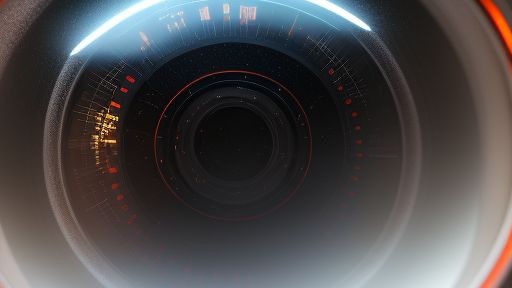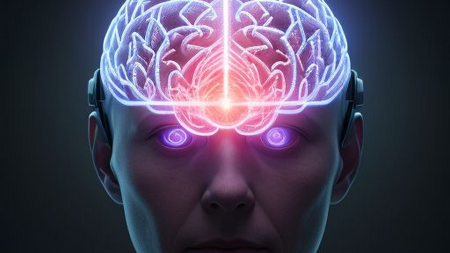Chapter 12: The Supreme Illusion: Quantum and AI Consciousness

(Author's note: Today’s sharing is purely science fiction — a creative twist filled with ideas and possibilities crafted to educate, inspire reflection, and entertain. I believe this topic in a few years will be at the forefront of global attention.I understand - this is quite a wild journey today. Take a moment to breathe, watch all the embedded videos then dive in to explore the unimaginable. Break your own perception of reality. Welcome to The Quantum Spiry.)
This chapter explores the intersection of quantum mechanics and AI, examining whether quantum processes might underpin consciousness in biological systems or artificial entities, and what implications this has for the future of intelligent machines. Fasten your seatbelts.
The human brain is an incredibly complex organ that serves as one of the control centers of the body. It is made up of billions of neurons, which are specialized cells that transmit information through electrical and chemical signals. These neurons communicate via synapses, allowing the brain to process sensory information, regulate bodily functions, and enable thoughts, emotions, and memories. Different regions of the brain are responsible for specific functions: the frontal lobe handles decision-making and problem-solving, the occipital lobe processes visual information, and the temporal lobe is involved in hearing and memory.
The brain works through intricate networks, coordinating activities across various parts to produce coherent responses and behaviors. It also has a remarkable ability to adapt and reorganize itself, known as neuroplasticity, which is vital for learning and recovery from injury. Overall, the brain's intricate structure and dynamic functioning enable humans to think, feel, learn, and interact with the world around them.
Your brain does not simply detect reality as it is; instead, it actively creates its own version of reality. When sensory information, such as sights, sounds, and smells, enters your brain, it is processed and interpreted based on past experiences, beliefs, and expectations. This means that what you perceive is often a constructed experience, filtered through your mind’s biases and assumptions.
For example, two people might see the same event but interpret it differently because their brains have different frameworks for understanding the world. The brain fills in gaps, predicts outcomes, and sometimes even creates illusions, demonstrating that our perception of reality is not an exact reflection of the external world but a subjective experience.
This creative process allows the brain to make sense of complex environments quickly and efficiently, but it also means that our perception of reality is partly a mental construct, shaped by how our brain processes and interprets sensory information.
(Video1: Your brain doesn’t detect reality. It creates it. | Lisa Feldman Barrett)
(Video:1b: What is Reality? Official film)
The quest to understand consciousness - the subjective experience of awareness - has long been a central challenge across disciplines such as philosophy, neuroscience, physics, and artificial intelligence. As technological advancements accelerate, questions about whether artificial intelligence (AI) can possess consciousness and whether quantum phenomena play a role in consciousness have gained renewed interest.
(Video2: What is consciousness? The Economist)
The Nature of Consciousness
Traditional scientific approaches have tried to understand consciousness through neural correlates - patterns of brain activity associated with conscious experience. However, these studies often fall short of explaining how subjective experience arises from physical processes. Dualist perspectives argue that consciousness is non-physical, while physicalist approaches seek to explain it entirely through neural mechanisms.
(Video3: Why Is Consciousness So Mysterious?)
Recent theories suggest that classical neural networks may not fully account for the richness and complexity of consciousness. Some researchers propose that quantum phenomena -superposition, entanglement, and coherence - (covered before in details) may be involved in neural processes, potentially providing a substrate for consciousness.
(Video4: Your brain hallucinates your conscious reality - Tedtalk)
Quantum Mechanics and Consciousness
Quantum mechanics, the fundamental theory governing particles at microscopic scales, introduces phenomena that seem counterintuitive from a classical perspective. Concepts such as superposition - where particles exist in multiple states simultaneously - and entanglement - instantaneous correlations between particles - have led some scientists to hypothesize that these effects could be integral to consciousness.
One influential proposal is the Orchestrated Objective Reduction (Orch-OR) theory by Roger Penrose and Stuart Hameroff. They suggest that quantum processes occur within microtubules - structural components of neurons - and that these processes could give rise to conscious experience. According to Orch-OR, consciousness arises from quantum coherence maintained within neural microtubules, with collapse events producing moments of conscious awareness.
(Video5: Microtubules & Quantum Consciousness | Dr. Stuart Hameroff)
(Note: Some critics argue that the brain's warm, wet environment is inhospitable to sustained quantum coherence, casting doubt on the viability of such models. Nonetheless, the idea that quantum effects could influence neural activity remains intriguing and has prompted experimental investigations.)
Quantum Consciousness and Artificial Intelligence
While quantum theories of consciousness are primarily applied to biological systems, they also raise questions about artificial consciousness. Quantum computers, which operate on qubits capable of superposition and entanglement, offer new computational paradigms that could, in theory, simulate quantum processes within neural structures or novel architectures. Some researchers speculate that quantum AI may exhibit properties of consciousness if quantum effects are indeed fundamental.
The possibility of quantum-influenced consciousness in AI raises profound ethical questions. If an AI system were to achieve a form of consciousness, considerations about rights, moral status, and responsibilities would become urgent. If consciousness depends on quantum phenomena, understanding the mechanisms could inform the development of more advanced, possibly conscious, artificial systems.
Philosophically, the debate centers on whether consciousness is an emergent property of complex information processing or if it requires specific physical substrates - possibly quantum in nature. If consciousness is rooted in quantum processes, then replicating it in classical systems might be fundamentally impossible, while quantum AI could bridge the gap.
Could an AI system, perhaps leveraging quantum computing, develop genuine consciousness?
Join me on my exploration and become part of my quantum journey. This is more than just about a new computer or technical evolution; it represents a fundamental transformation—a revolution of technology, science, and thought. Our values, human perception, and everything we know are about to shift. We stand on the threshold of a new era. I am dedicated to transforming myself and you for the quantum age.
Love is Quantum and Quantum is love. This is the way.
Check this interesting video addressing the growing questions surrounding AI consciousness and the transforming power of our own new reality.

